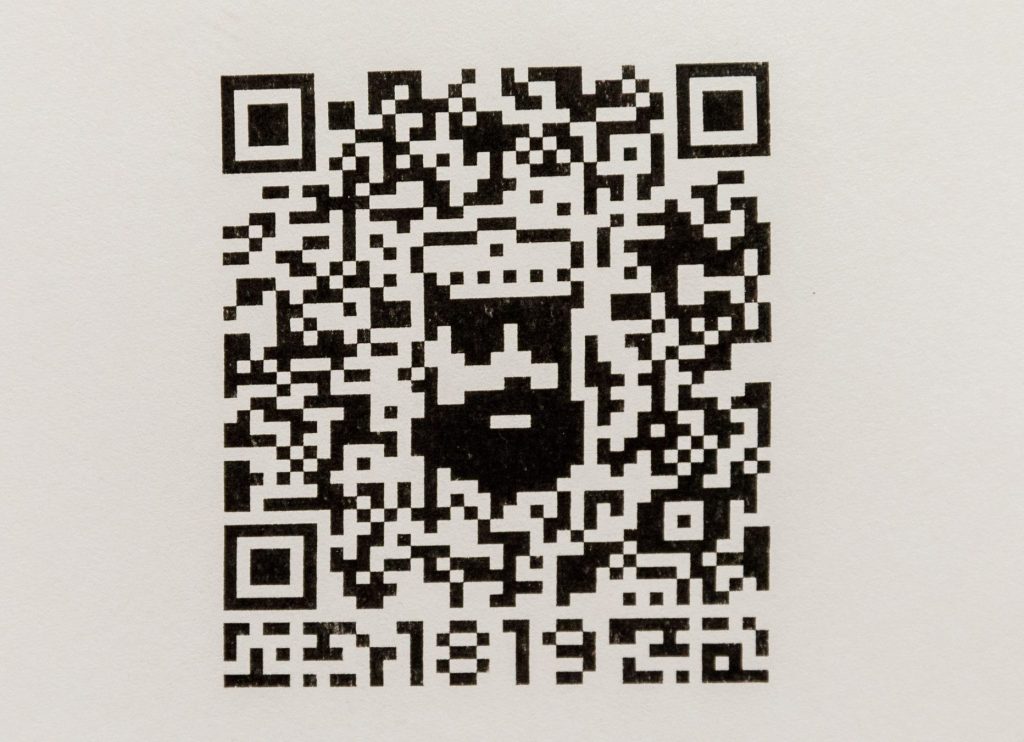 CryptoPunks QR Code. Sotheby's
CryptoPunks QR Code. Sotheby's
On Tuesday, Twitter user @ZuwuTV, an NFT trader and collector, noticed that an employee for the popular NFT marketplace OpenSea seemed to be involved in insider trading. The $1.5 billion startup’s head of products, Nate Chastain, was suspected of using several secret Ethereum wallets to buy exclusive OpenSea NFT drops before they were officially listed on the website for purchase. Chastain allegedly sold the NFTs when prices spiked during their official release. The profits were then allegedly funneled back to Chastain’s personal Ethereum wallet. @ZuwuTV posted his suspicions, along with screenshots of the transactions, which prompted a community-wide investigation, as reported in the Verge.
The next day, OpenSea admitted in a blog post that an unnamed employee had used their position to purchase works that were set to be featured on the company’s website before they were made publicly available. “This is incredibly disappointing,” CEO Devin Finzer wrote in a statement, adding that the employee had resigned. While Chastain was not specifically named, what Finzer described matches the accusations made against Chastain on Twitter. Additionally, Chastain’s Twitter bio recently changed to read, “Past: OpenSea.” Chastain has not addressed the allegations publicly.
In response to the insider trading scare, OpenSea implemented two new policies. “OpenSea team members may not buy or sell from collections or creators while we are featuring or promoting them,” Finzer wrote. Employees are also now prohibited from buying or selling NFTs using confidential information, even if the NFT is being sold on different platforms.
An employee at the generative art minting platform Art Blocks was also recently suspected of insider trading by members of the Art Blocks Discord messaging site, which is public and can be posted on by anyone.
On September 8th, user Big S., an Art Blocks collector, posted on Discord that he had been looking into the upcoming release of an NFT series by artist Monica Rizzoli, slated to be featured in the curated projects section of the Art Blocks website. It was then that Big S. discovered that an Art Blocks employee had purchased one of the few works Rizzoli had minted on Foundation, an NFT platform, a week before the public announcement on the Rizzoli feature had been made.
The post tagged Massoud Adipour, a Community Engagement Specialist at Art Blocks who goes by “Ponyo” on Discord. The discussion started with an inquiry about the internal process of the curation of featured collections and how that information was circulated in advance of public announcements.
Adipour responded, claiming that he did see Rizzoli’s work on the “test net,” which is where Art Blocks tests the algorithms that generative artists submit to ascertain their quality. “I saw what was on the test net, loved the work and decided to look around to see if they had any other NFTs available,” Adipour wrote. He clarified in the same post that there is a curation board that looks at the test net, ranks incoming collections, and sends their scores to the CCO of Art Blocks, Jeff Davis, who then announces which collections will be featured on Discord. Supposedly, it is only when this public announcement is given that Adipour, like other Art Blocks employees, finds out which collections will be featured.
Soon after the CEO and founder of Art Blocks, Erick Calderon, who goes by snowfro on Discord, responded to the conversation on Discord. In response to recent discoveries Calderon wrote that he “100% agree[d that] we need to establish some guidelines.” The guidelines have not yet been formalized or made official.
“It is important to note that discovering an artist through being involved in the Art Blocks pipeline is not something I can call out as a negative thing,” Calderon continued. “Visiting the artist’s work and thinking ‘hey this is rad’ and buying it is not a negative thing.” However, Calderon admitted in the same post that should this situation occur with frequency it would be a “concern” and so the team was working to “get ahead of it.”
These scandals come at a critical time for the NFT community as government officials move to regulate cryptocurrencies. Just this past Tuesday, according to CNBC, the Securities and Exchange Commission Chairman, Gary Gensler, assured lawmakers that he was working to create rules to regulate cryptocurrencies like Ethereum. Should that happen, there could be great consequences for the value of those crypotocurrencies and thus the value of NFTs.
“Formal response for all mainstream media journalists who have been trying to contact me: I’d like to say thank you for reaching out, and also suck my dick,” wrote @ZuwuTV in a Twitter post. “I’d rather blow an old dude than give y’all one second of my time so y’all can use this to push your regulations narrative.”
Yesterday, OpenSea updated its statement to make the point that decentralized and unregulated systems such as NFTs “fundamentally change the Internet in a way that requires strong values, organized conduct, and transparency.” The community will continue to develop norms as more growing pains develop, though it’s uncertain whether these scandals will further contribute to the call for regulations.
Source link : https://www.artnews.com/art-news/news/insider-trading-nft-marketplaces-regulation-1234604209












